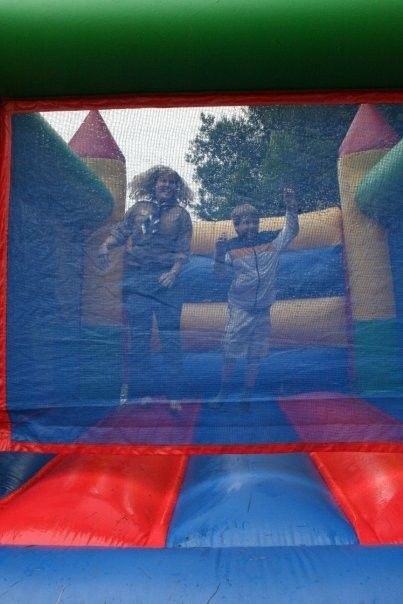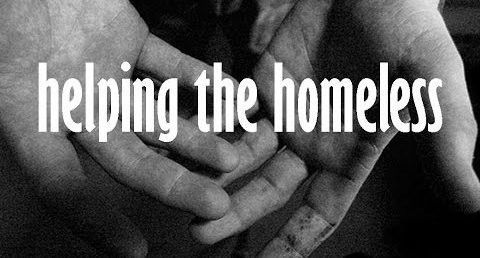“The Importance of Play – As a Kid & an Adult”
“I’m a Big Kid at Heart.”

We’ve all heard someone say at one point or another, “I’m a big kid at heart.” For those that truly know me, they acknowledge I’m definitely one myself. It’s public knowledge on my professional and personal profiles that not only did I own and operate a large professional home daycare for almost fourteen years, but I have also volunteered for many years with both Girl Guides of Canada and Scouts Canada. Why did I do it for so long? The answer is simple. I love to play! And in these situations I felt “safe” to express my inner child, with the freedom to run around the gym and act silly without anyone questioning why or my sanity. There are many “grown ups” who judge and would turn their noses at my silliness with comments of, “Grow up” and “Act your age.” Yet something tells me that these people are missing something out of life. They aren’t getting that outlet to burn off excess energy or the feeling of happiness seeing little faces light up with smiles because your playing with them. Over the years I’ve also learned that you are never too old to play with your kids or your grand kids.

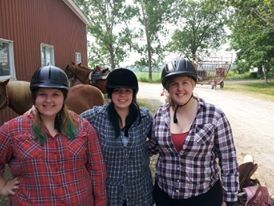
“Go Outside and Play”
When we were kids, we spent all of our free time outside playing with our friends. Soaking up the Vitamin D from the sun and staying athletic as we skipped rope, hula hooped, blew bubbles and played everything from baseball, soccer to street hockey. We didn’t watch a lot of TV. How could we when most families had only one in the living room, usually taken over by parental units unwinding to watch the news or favorite shows. What are kids today doing? Playing on their phones, I Pads, home computers and X boxes. In my opinion, to some degree, the youth of today are not as healthy due to lack of sunshine and exercise.
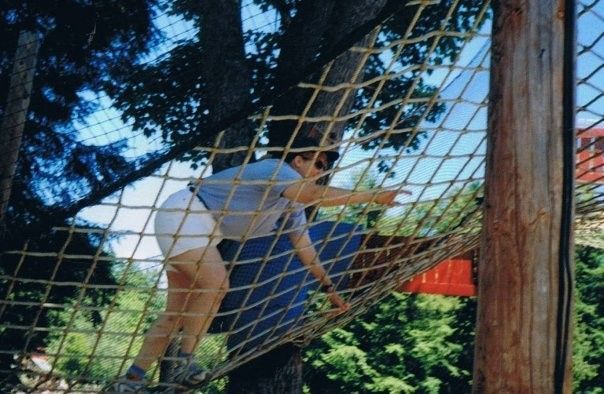
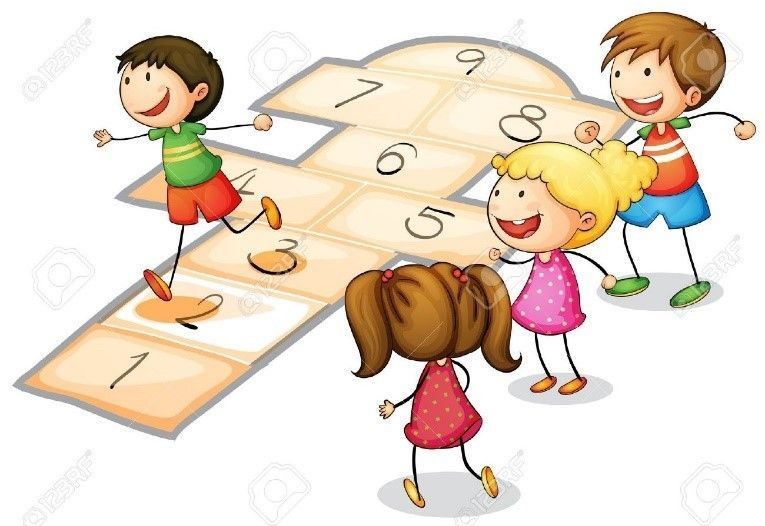
According to an engaging article written by Kenneth R. Ginsburg, titled” The Importance of Play in Promoting Healthy Child Development and Maintaining Strong Parent-Child Bonds” that was published by Pediatrics and posted in January 2007, stated
“Play allows children to use their creativity while developing their imagination, dexterity, and physical, cognitive, and emotional strength. Play is important to healthy brain development. It is through play that children at a very early age engage and interact in the world around them. Play allows children to create and explore a world they can master, conquering their fears while practicing adult roles, sometimes in conjunction with other children or adult caregivers. As they master their world, play helps children develop new competencies that lead to enhanced confidence and the resiliency they will need to face future challenges. Undirected play allows children to learn how to work in groups, to share, to negotiate, to resolve conflicts, and to learn self-advocacy skills. When play is allowed to be child driven, children practice decision-making skills, move at their own pace, discover their own areas of interest, and ultimately engage fully in the passions they wish to pursue. Ideally, much of play involves adults, but when play is controlled by adults, children acquiesce to adult rules and concerns and lose some of the benefits play offers them, particularly in developing creativity, leadership, and group skills. In contrast to passive entertainment, play builds active, healthy bodies. In fact, it has been suggested that encouraging unstructured play may be an exceptional way to increase physical activity levels in children, which is one important strategy in the resolution of the obesity epidemic. Perhaps above all, play is a simple joy that is a cherished part of childhood.”

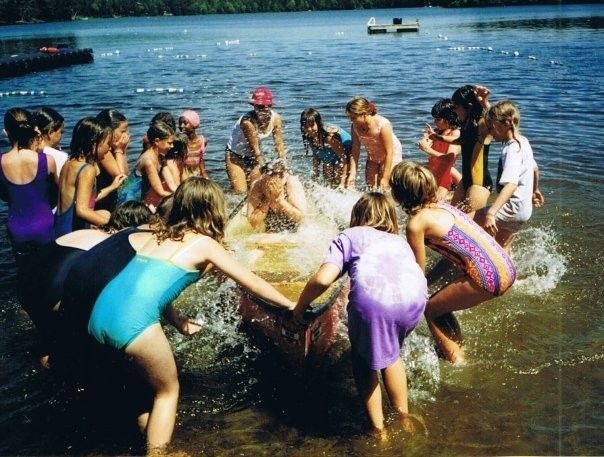
I have many memories of dancing at Cub Camp, letting the girls sink our canoe with me in it and many others that I wouldn't trade for all the gold in the world.
Importance of Play for Bonding with Children
“Make Time in Your Day for Play”
I found an interesting article entitled, “The Benefits of Play for Adults” written by Authors: Lawrence Robinson, Melinda Smith, M.A., Jeanne Segal, Ph.D., and Jennifer Shubin. Last updated: April 2016.
“Play is not just essential for kids; it can be an important source of relaxation and stimulation for adults as well. Playing with your romantic partner, friends, co-workers, pets, and children is a sure (and fun) way to fuel your imagination, creativity, problem-solving abilities, and emotional well-being. Adult play is a time to forget about work and commitments, and to be social in an unstructured, creative way. Focus your play on the actual experience, not on accomplishing any goal. There doesn’t need to be any point to the activity beyond having fun and enjoying yourself. Play could be simply goofing off with friends, sharing jokes with a co worker, throwing a Frisbee on the beach, dressing up at Halloween with your kids, building a snowman in the yard, playing fetch with a dog, a game of charades at a party, or going for a bike ride with your spouse with no destination in mind. By giving yourself permission to play with the joyful abandon of childhood, you can reap oodles of health benefits throughout life.”


Halloween Hippies & Vampires just for fun!
Our beloved Smoke on the Water Dragon Boating Team!
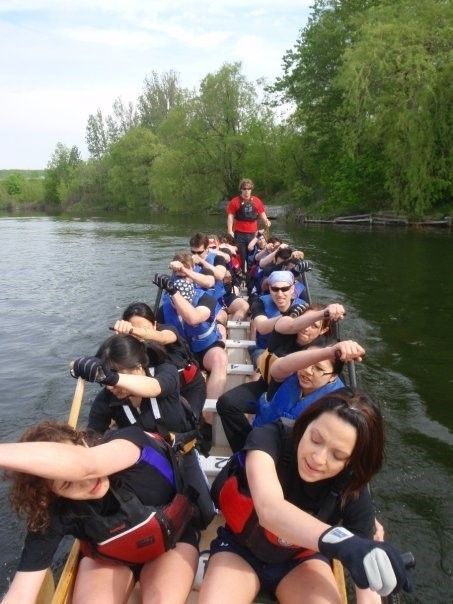

Toronto Island June 2011 - my hubby proposed on stage after getting silver in our division.
“There's a saying about All Work and No Play”
This article goes on to talk about one of my favorite topics, playing at work. There are some companies that are a bore and forces their employees to work in a mundane environment that has no social or play engagement. Employees are forced to sit at desks in front of computers for 8 hours per day, 5 days per week. However, in this article they go on to say, “Many dot-com companies have long recognized the link between productivity and a fun work environment. Some encourage play and creativity by offering art or yoga classes, throwing regular parties, providing games such as Foosball or ping pong, or encouraging recess-like breaks during the workday for employees to play and let off steam. These companies know that more play at work results in more productivity, higher job satisfaction, greater workplace morale, and a decrease in employees skipping work and staff turnover.
If you’re fortunate enough to work for such a company, embrace the culture; if your company lacks the play ethic, you can still inject your own sense of play into breaks and lunch hours. Keep a camera or sketch pad on hand and take creative breaks where you can. Joke with coworkers during coffee breaks, relieve stress at lunch by shooting hoops, playing cards, or completing word puzzles together. It can strengthen the bond you have with your coworkers as well as improve your job performance. For people with mundane jobs, maintaining a sense of play can make a real difference to the work day by helping to relieve boredom.”
Playing at work:
- keeps you functional when under stress
- refreshes your mind and body
- encourages teamwork
- increases energy and prevents burnout
- triggers creativity and innovation
- helps you see problems in new ways
When I worked in Pooh’s Playhouse Daycare and Learning Centre we encouraged fun as well as education, as there’s a time and place for everything. The same can be said for Guiding and Scouting as we are teaching the kids about not only having fun, but having a respect for their community and the world around them.
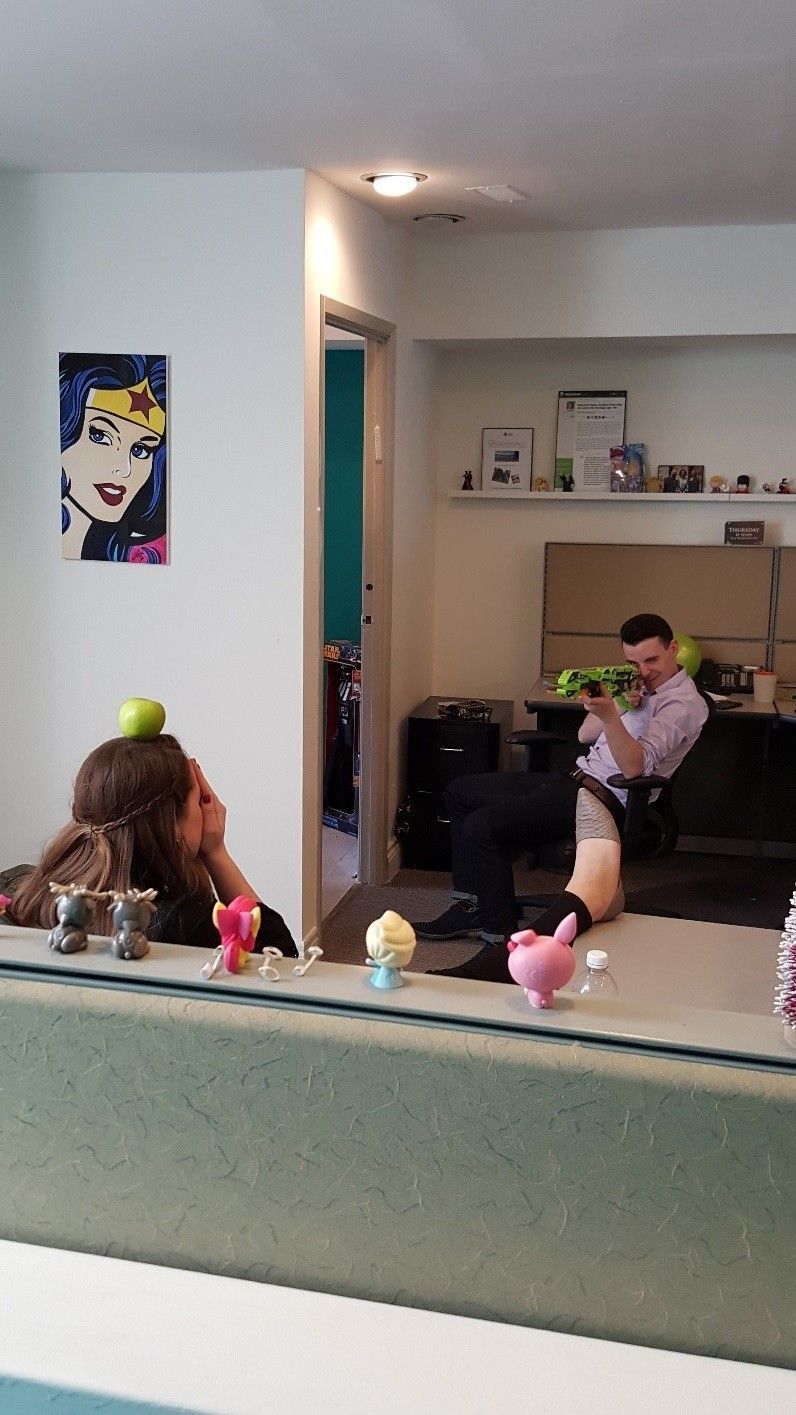
The only workplace that I was able to play as an adult was at ChizComm, They definitely embrace the playing at work, especially when challenged to finding new and innovative ways of marketing products for their clients. Having the freedom to start a gun blaster fight, playing with toys that are around the office they represent or telling random jokes with co-workers are encouraged as part of the company culture. Although I admit having some laughs, it will be a culture shock walking into another office where, most likely they don’t embrace the aspect of play at work. Of the few places I've interviewed recently I've found one that has a ping pong table to help their staff let off some steam and have time in the day for play. For the most part though, for me and many others it means we must take the time to play outside of our workplaces and find the joy of being a kid again.
